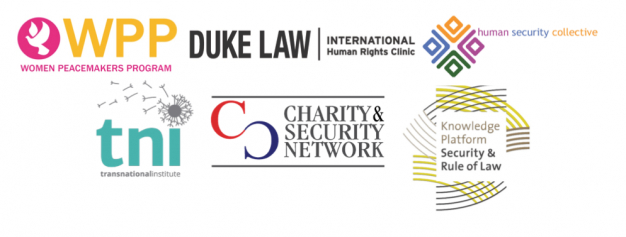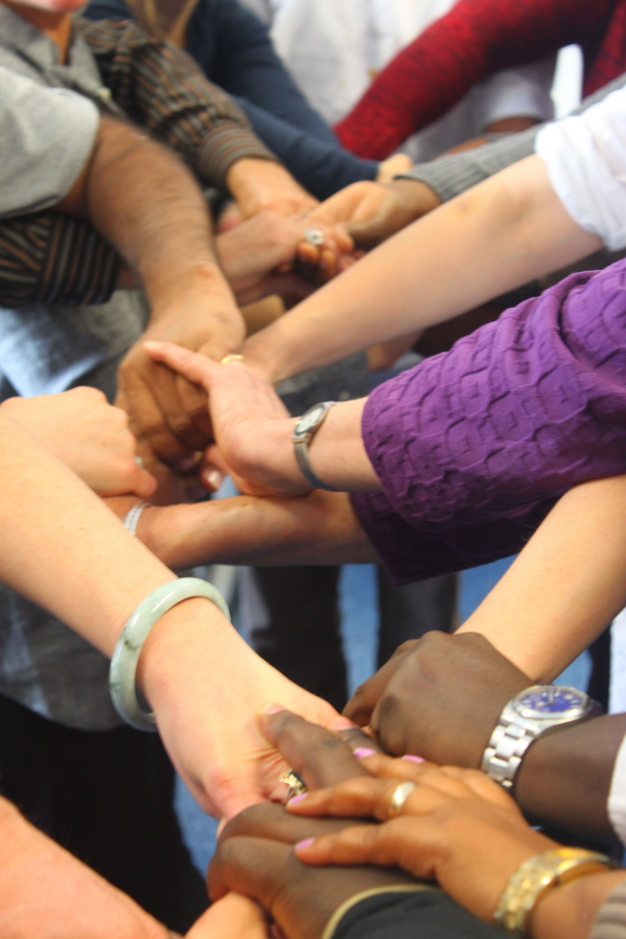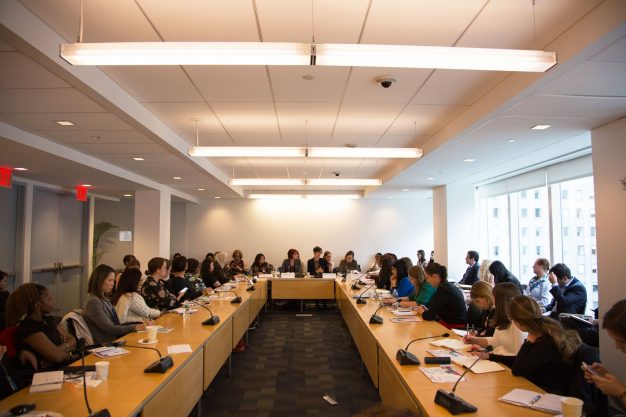


At the end of the CSW Parallel Event “A Transformative Women, Peace and Security Agenda: The Need to Challenge Militarism”, (taken place on March 11, 2015, co-organized by the Women Peacemakers Program, WILPF, Saferworld, SAMYAK and the Consortium on Gender, Human Rights and Security), WPP announced a joint action research with Cordaid and GPPAC on the persistent structural barriers in regards to UNSCR 1325 implementation. The research will build on the insights provided during the panel discussion, and will be launched in October 2015, to coincide with the 15th anniversary of UNSCR 1325. Please find below more information about the project.
In the context of the 15th anniversary of UNSCR 1325, the Global Partnership for the Prevention of Armed Conflict (GPPAC), Cordaid, and Women Peacemakers Program (WPP) are launching a research and action project on the deep-rooted obstacles to women’s participation in peace efforts. Despite recent intensified efforts to ensure women’s rights and participation in formal negotiations, women face serious and persisting challenges in their peacebuilding work in both formal and informal peace efforts.
Drawing on new and existing research, the project asks challenging questions on impediments to this key aspect of the full implementation of the women, peace and security agenda.
Moving beyond the UN Security Council’s definition of conflict situations, the project will look at a broader geographic picture, with case studies that illuminate conflict prevention, nonviolent conflict resolution, and post-conflict rebuilding. Focusing on a broad regional representation, the project will look at conflicts traditionally under-represented in the discourse, and how women are working in these areas and can be better supported.
Highlighting and reflecting the experiences and voices of the project partners, including through consultations in June, the project will explore the specific work of participants, including their assessment of successes and challenges to their peace work. What helped in their situation? What hindered? What was the usefulness of national/regional/international policy frameworks?
Drawing on these perspectives, the project will provide action-oriented recommendations for governments, international organizations, and NGO colleagues. The recommendations will focus on sustainable measures these actors can take to support the successes of women peacebuilders and to overcome the barriers these women encounter.
The project report will be presented in October 2015 to coincide with the anniversary of UNSCR 1325.
For more information, contact:
- Gesa Bent (GPPAC) – g.bent@gppac.net
- Marian Wiersinga (Cordaid) – marian.wiersinga@cordaid.nl
- Sophie Schellens (Women Peacemakers Program) – sophie@womenpeacemakersprogram.org
12 Dec '17 Today, we are pleased to share with you the Conference Report “Financial Inclusion for Freedom and Security” by the Women Peacemakers Program, Duke Law International Human Rights Clinic, Human Security Collective, Transnational Institute, the Charity & Security Network, in cooperation with the Knowledge Platform Security and Rule of Law.

7 Dec '17 Today, on the 13th day of the 16 Days of Activism Against Gender Violence Campaign, we bring you the sad news that from 15 December onwards, the Women Peacemakers Program (WPP) will have to close its doors. We would like to ask for your time to read what has driven us to make this decision.

7 Nov '17 On Thursday, 26 October 2017, a side event entitled, “Pulling the Rug from Under Our Feet: What is the UNSCR 1325 Without Civil Society Freedoms?” was hosted on the margins of the 17th anniversary of United Nations Security Council Resolution (UNSCR) 1325. The event was hosted by the Women Peacemakers Program (WPP) and the Dutch Mission, in collaboration with Duke Law’s International Human Rights Clinic, Al-Hayat Center for Civil Society Development, Arab Women Organisation of Jordan, NOVACT, Free Sight Association, Iraqi Al-Amal Association, Women Empowerment Organisation, NGO Working Group on Women, Peace and Security and Women’s International League for Peace and Freedom. This article briefly looks at the main issues discussed during the event.
